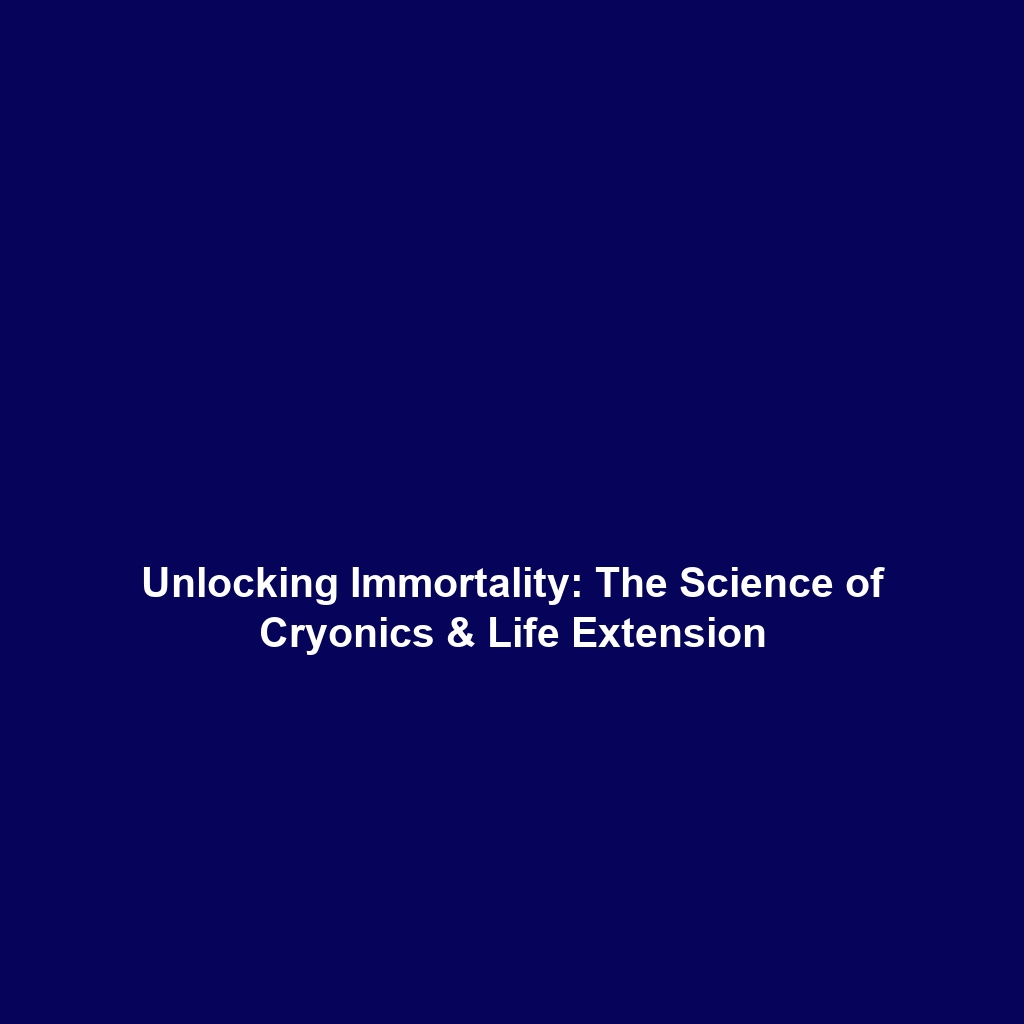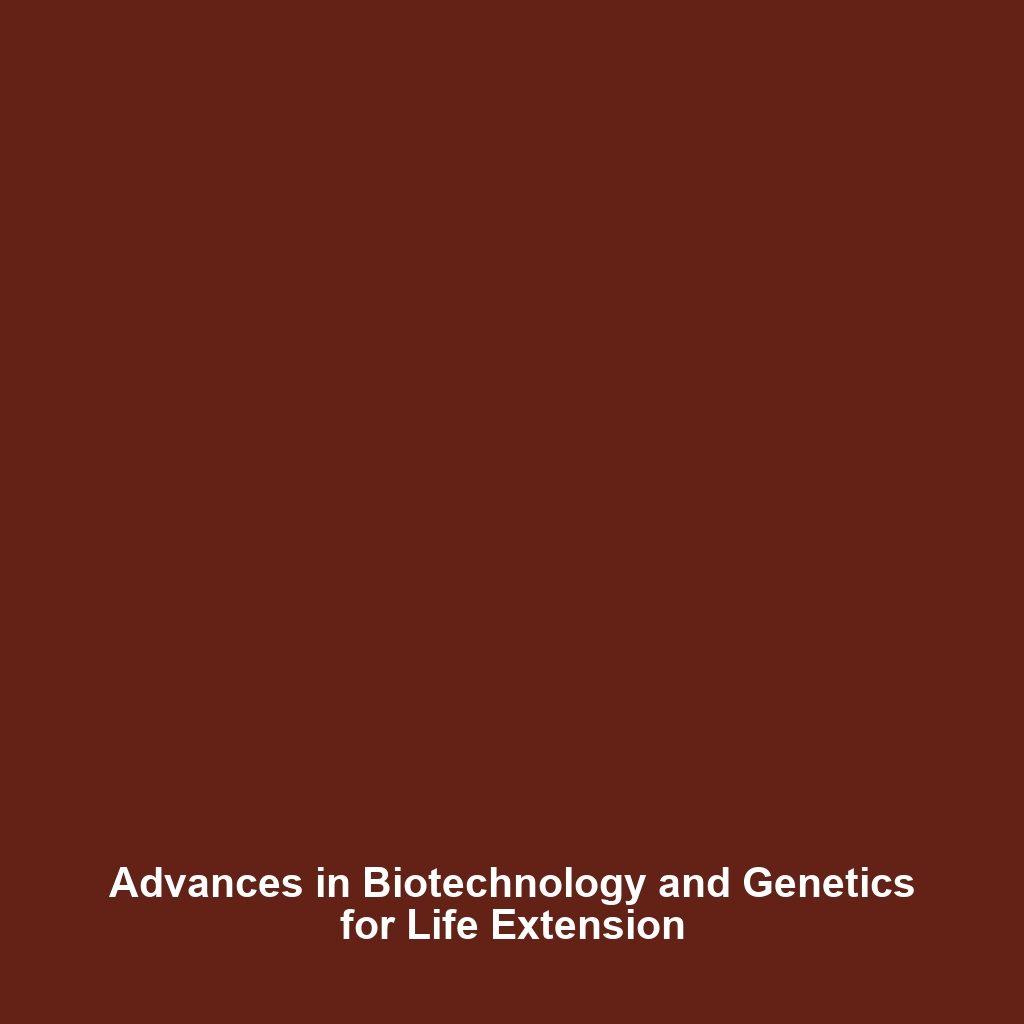The Science of Life Extension
The Science of Life Extension is an interdisciplinary field that merges biology, medicine, and technology to explore ways to prolong human life. This area is particularly significant within the broader context of Cryonics & Life Extension, as it delves into mechanisms that can potentially halt or reverse aging processes. Understanding the science behind life extension not only raises philosophical questions but also offers practical applications aimed at improving the quality and duration of life.
Key Concepts of Life Extension
Life extension involves several core concepts that are integral to understanding its potential within Cryonics & Life Extension:
- Aging Mechanisms: Investigating biological processes such as cellular senescence, telomere shortening, and oxidative stress.
- Regenerative Medicine: Utilizing stem cells and tissue engineering to repair and replace damaged tissues and organs.
- Nutraceuticals: Studying dietary supplements and nutrients that may slow the aging process, such as antioxidants and anti-inflammatory agents.
- Genetic Engineering: Exploring gene therapy and manipulation techniques to potentially reverse aging at a cellular level.
Applications and Real-World Uses
The Science of Life Extension has various real-world applications, particularly relevant in the fields of cryonics and life extension:
- How therapy is used in life extension: Telomerase therapy, which aims to extend telomeres, is being researched to potentially delay aging.
- Applications of regenerative medicine in life extension: Treatments using stem cells for organ regeneration and repair are being explored to enhance longevity.
- Aging reversal experiments: Some studies focus on the effects of caloric restriction and fasting on lifespan extension.
Current Challenges
Despite its promising theories and applications, the study of The Science of Life Extension faces several challenges and limitations:
- Challenges of funding: Research in this area often suffers from a lack of financial support due to skepticism in the scientific community.
- Ethical considerations: The implications of extending human life raise complex ethical issues surrounding population growth and resource allocation.
- Technical limitations: Current technologies may not be sufficiently advanced to effectively implement life extension in humans.
Future Research and Innovations
The future of The Science of Life Extension is bright with ongoing innovations and research endeavors. Key areas to watch include:
- Next-gen technologies: Advances in CRISPR technology for gene editing could lead to breakthroughs in combating age-related diseases.
- Artificial intelligence: AI-driven drug discovery may identify new compounds that can enhance longevity or manage aging.
- Personalized medicine: Tailoring treatments based on an individual’s genetic profile offers promising avenues for effective life extension solutions.
Conclusion
In summary, The Science of Life Extension holds significant relevance within Cryonics & Life Extension, offering insights into the mechanics of aging and potential strategies for prolonging life. Continued research in this field promises to unveil groundbreaking discoveries that could redefine human longevity. For those interested in exploring more about life extension, check out our related articles on regenerative medicine and innovative therapies.

